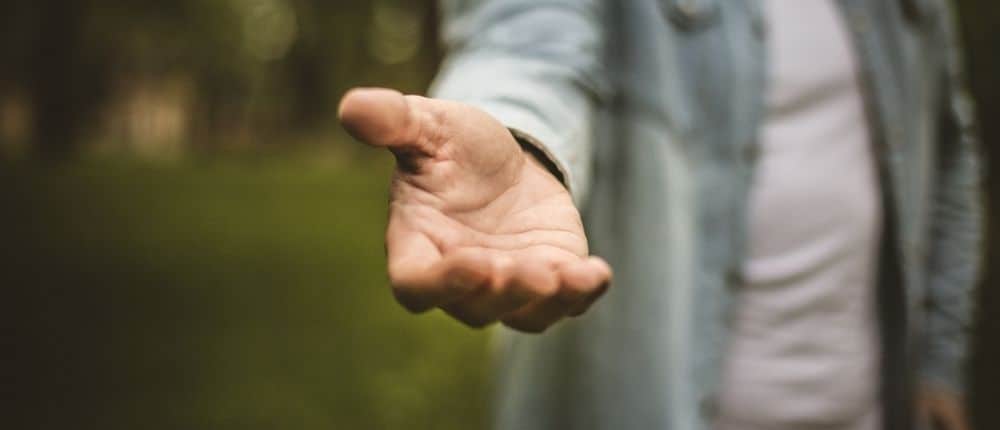
This website uses cookies to improve your experience. We'll assume you're ok with this, but you can opt-out if you wish. Read More
The Next Round: What happens after you change your drinking?


I’m stuck. I’ve been struggling with drinking since lockdown started, and recently it’s got out of control. I want to cut down, but it’s difficult. I feel like I might need help, but a big part of me holds back from asking. Surely I can sort this out myself? I don’t know how to ask for help. Any ideas about how to begin? Susie

When we’re facing an overwhelming challenge, and especially a problem that we deal with every day, it’s easy to feel isolated inside it. Being so entangled in our difficulties, we can’t see beyond them. So we end up believing that we are the only ones facing these problems. Nobody else can understand what we are going through, surely? And if people knew how complicated we really were, they’d probably run away anyway, right? We would run away from ourselves, if we could.
Feeling alone inside our problems actually makes them worse. We can find ourselves drinking to cope with the fact that we can’t cope with our drinking. It’s so easy to fall into a downward spiral of isolation.
The most corrosive myth of self-help culture is that change is solely down to us. We elevate individualism, bravery and personal endeavour. And we frame recovery as an act of singular persistence.
It is true that each of us will have to make choices, day-by-day, that nobody else will see. But drinking problems are not, and never have been, just individual problems. We all live in a society that makes our drug of choice widely available. Alcohol is woven into the life of our communities, into our celebrations and commiserations. Our difficulties with drinking are often the product of our interpersonal history and present relationships. And drinking can be a rational choice in the face of a society that is stacked against us.
The part of you that holds back from asking for assistance is conditioned by the myth of self-help culture. So see that myth for what it is. It is profoundly unfair that those who struggle most are isolated most. You cannot change your drinking on your own, and you were never meant to.
You cannot change your drinking on your own, and you were never meant to.
Learning how to ask for help is a powerful way to work against the damaging myth of individualism. The truth is that we need each other. Human lives are not meant to be lived in isolation, but together. That’s why communities like Club Soda Together exist. Connecting with others shifts our perspective. We see that our problems are not unique. We learn from other people’s trial and error. We lean into each other’s wisdom. We share in each other’s successes. We celebrate change together.
First of all, consider who you can ask for help. Is there a friend, neighbour, colleague or family member you trust and respect? Perhaps there’s someone you know through an online community like Club Soda? Or do you need more specialist professional support, from a coach, counsellor or therapist? You may generate a list of the types of people who may be able to help you. And you may need all of them. So think of asking for help as an ongoing activity, rather than a one-off exercise. No single conversation, relationship, course or community holds all the answers.
No single conversation, relationship, course or community holds all the answers.
Once you’ve worked out who to ask for help, you’ll want to consider how to ask for help. Here are three simple tips:
I hope that helps. And if it doesn’t, do ask someone else. Remember, none of us has all the answers. But we do together.
Cheers

Dru Jaeger supports people who want to cut down or stop drinking. Community is an important part of Club Soda’s courses, and they all offer a chance to connect with others. Discover Club Soda’s courses.
This website uses cookies to improve your experience. We'll assume you're ok with this, but you can opt-out if you wish. Read More
| Name | Domain | Purpose | Expiry | Type |
|---|---|---|---|---|
| wpl_user_preference | joinclubsoda.com | WP GDPR Cookie Consent Preferences. | 1 year | HTTP |
| PHPSESSID | www.tickettailor.com | PHP generic session cookie. | 55 years | HTTP |
| AWSALB | www.tickettailor.com | Amazon Web Services Load Balancer cookie. | 7 days | HTTP |
| YSC | youtube.com | YouTube session cookie. | 55 years | HTTP |
| Name | Domain | Purpose | Expiry | Type |
|---|---|---|---|---|
| VISITOR_INFO1_LIVE | youtube.com | YouTube cookie. | 6 months | HTTP |
| Name | Domain | Purpose | Expiry | Type |
|---|---|---|---|---|
| _ga | joinclubsoda.com | Google Universal Analytics long-time unique user tracking identifier. | 2 years | HTTP |
| sbjs_migrations | joinclubsoda.com | Sourcebuster tracking cookie | 55 years | HTTP |
| sbjs_current_add | joinclubsoda.com | Sourcebuster tracking cookie | 55 years | HTTP |
| sbjs_first_add | joinclubsoda.com | Sourcebuster tracking cookie | 55 years | HTTP |
| sbjs_current | joinclubsoda.com | Sourcebuster tracking cookie | 55 years | HTTP |
| sbjs_first | joinclubsoda.com | Sourcebuster tracking cookie | 55 years | HTTP |
| sbjs_udata | joinclubsoda.com | Sourcebuster tracking cookie | 55 years | HTTP |
| sbjs_session | joinclubsoda.com | SourceBuster Tracking session | Session | HTTP |
| Name | Domain | Purpose | Expiry | Type |
|---|---|---|---|---|
| mailchimp_landing_site | joinclubsoda.com | Mailchimp functional cookie | 28 days | HTTP |
| __cf_bm | tickettailor.com | Generic CloudFlare functional cookie. | Session | HTTP |
| NID | google.com | Google unique id for preferences. | 6 months | HTTP |
| Name | Domain | Purpose | Expiry | Type |
|---|---|---|---|---|
| _ga_10XZMT03ZM | joinclubsoda.com | --- | 2 years | --- |
| AWSALBCORS | www.tickettailor.com | --- | 7 days | --- |
| cf_clearance | tickettailor.com | --- | 1 year | --- |
| VISITOR_PRIVACY_METADATA | youtube.com | --- | 6 months | --- |
Join Club Soda for 10% off your first order of drinks for UK delivery. Plus get our latest news and special offers for members to choose better drinks, change your drinking and connect with others.
If you get an error message with this form, you can also sign up at eepurl.com/dl5hPn